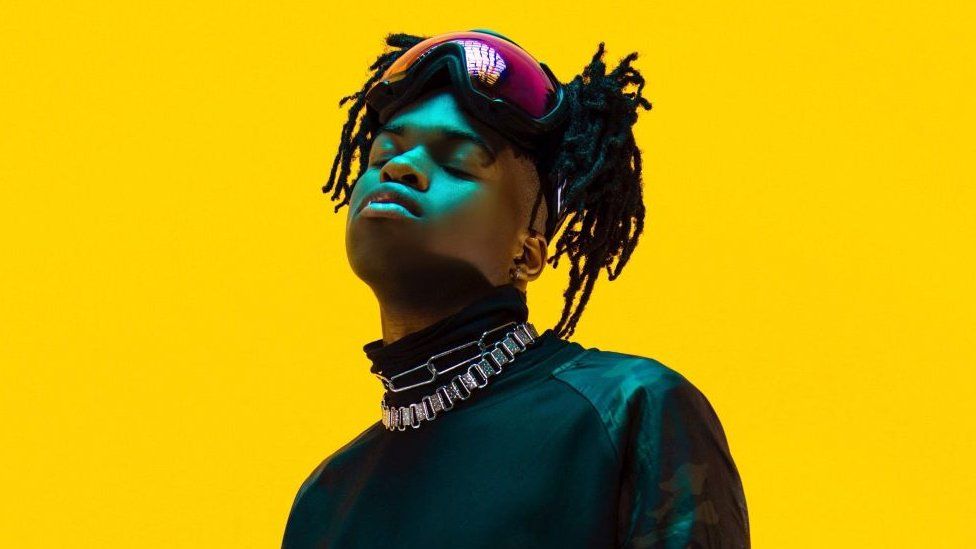Hip-hop at 50: The artists mixing it up and moving it forward
- Published

Hip-hop is 50 years old, and over the last few decades the genre's created a long list of icons who've changed the face of music.
It started in the Bronx, in New York, in August 1973, when funk and soul DJ Kool Herc mixed two records together.
Since then, experimentation has been a trademark of hip-hop, with artists keeping one foot in the past as they create innovative, exciting new sounds.
Names like Dr Dre, Biggie, Tupac, and Lauryn Hill have influenced or helped to boost newer acts like Eminem, Kendrick Lamar and Megan Thee Stallion.
Spin-off sub-genres like drill and grime, and regional scenes in Europe, South America and Asia have kept the sounds fresh and made the genre a global powerhouse.
According to streaming service Spotify, hip-hop and rap are consistently in its top three most-listened genres.
And for the past three years both have produced nearly half of its top 50 artists.
But a whole new generation is hoping to one day join hip-hop royalty on billions of playlists around the world.
BBC Newsbeat spoke to some young, up-and-coming artists to find out what the future could hold.
'I'm like a scientist'
Jordan Adetunji, from Belfast, describes himself as a "hip-hop scientist" who draws his influences from anywhere and everywhere.
The 24-year-old says his Nigerian heritage draws him to Afrobeats while his Irish upbringing sees him draw inspiration from the likes of Northern Irish guitarist Gary Moore.
Hip-hop is "so experimental" he says. "It can be mixed with so many different things.
"That's where I go with my music. I can mix it with alternative rock or I can mix it with dance music. I feel like that's just so exciting.
"I feel like I can really express myself with hip-hop, which is one of the best things about it.
"I'm mixing so much but it kind of gels together. So that's kind of like a scientist - I like to mix things together and see what I can come up with."
You can't talk about the future of music without mentioning AI.
It's already been controversial - a machine-generated song featuring a fake Drake and The Weeknd collab was pulled from Spotify - and Jordan's not convinced the tech will help hip-hop.
"It's a nice experimental tool," he tells Newsbeat, but he says it could never replicate the expressive quality humans bring.
"Raw emotion is something that people gravitate towards and we can feel as human beings.
"A certain type of energy or emotion to a song that I just feel like can't be created."
Rap hard, sing sweet
Miss LaFamilia, from Birmingham, was raised on artists like Lauryn Hill.
She says the Fugees singer "took the crown - she used to rap hard, and then also sing so sweet".
And Miss LaFamilia takes inspiration from figures like Lauryn, who've blazed a trail for other females.
"Being a woman, sometimes you just have to stand your ground a little bit more," she says.
"I just made it my thing where it was like, I'm gonna stand on the forefront and make myself be seen and heard and I think that's what the women have to do."
But she's hopeful that hip-hop will become even more inclusive and empowering for women in future.
She highlights artists like Mercury Music prize winner Little Simz as bringing something new to the scene while still remaining rooted in the genre's history of speaking on social issues.
"There are still artists that are very deep and very conscious and still put a lot into their music," she says.
"They've still got that element of hip-hop that was there back in the day."
A platform for poets
Rapper Avelino agrees that artists like Little Simz and Dave are carrying on the tradition of "using your talent and voice to speak for people in the struggle".
"These artists give me confidence in the future of the game, the future of rap, the essence of hip-hop," he says.
The 30-year-old from London, who broke out in 2015, has toured with Stormzy and heads up a new BBC Radio 1Xtra podcast The Rap Roundtable.
He remembers listening to Tupac and Biggie on his siblings' CD players, and says 50 years of hip-hop has shaped him immensely as an artist.
And he says it was watching hip-hop in the UK evolve, spilling into the grime scene, that most inspired him.
"It's one thing seeing someone from across the Atlantic do something," he says.
"But when it's someone from down the road, it really makes you believe that you can have a career by rapping."
What hip-hop created, Avelino believes, is a "platform for poets to speak their truth" and that young rappers like him are "part of that timeline".
"We stand on the shoulders of all the giants that came before us," he says.
- Published11 August
- Published7 August
- Published25 June
- Published18 April
- Published19 January 2020
- Published8 October 2019